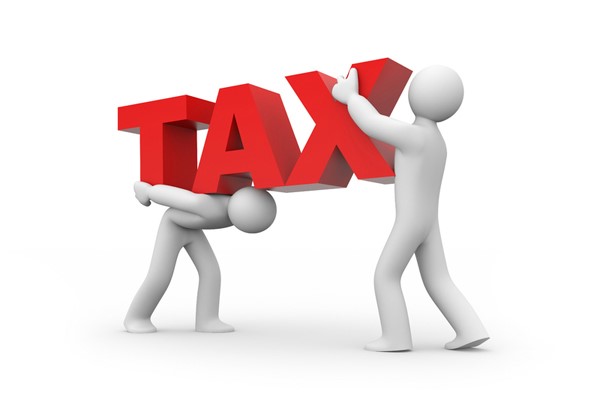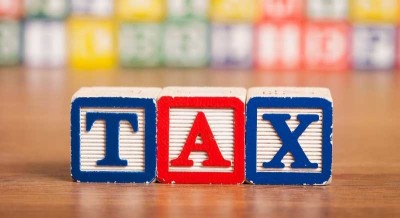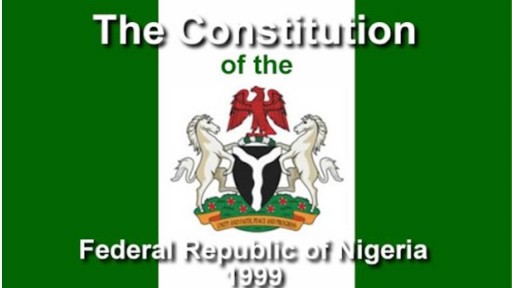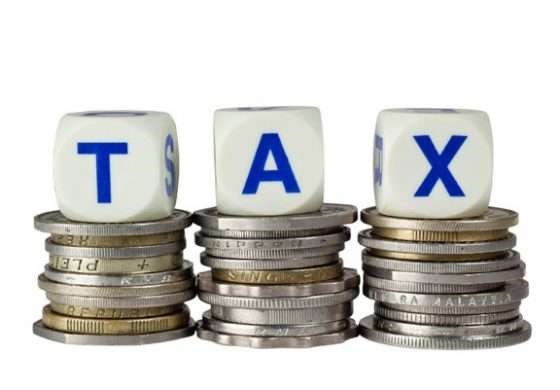Introduction
The Tax Appeal Tribunal, Lagos Zone (“TAT” or the “Tribunal”), recently held that infrastructure service providers licensed by the Nigerian Communications Commission (“NCC”) to engage in turnkey infrastructure deployment (construction of tower and tower equipment) and infrastructure sharing and leasing (collocation services) for players in different industries including the telecommunications industry, are not telecommunications companies and are therefore not subject to the 1% profit before tax levy imposed on telecommunications companies under section 12(2)(a) of the National Information Technology Development Agency (“NITDA”) Act 2007 (the “NITDA Act”). In reaching this decision, the Tribunal (for the first time) identified such entities as network facilities providers distinct from network service providers under section 101 (1) of the Nigeria

Communications Act 2003 (“NCC Act”). This novel decision of the TAT was reached in INT Towers Limited v Federal Inland Revenue Service (unreported judgment of the TAT delivered on February 3, 2023, in Appeal No. TAT/LZ/CIT/021/2022) (“INT Towers v FIRS”).
The TAT decision in INT Towers v FIRS is remarkable. It constitutes a significant reiteration of the rule established in Comviva Technologies Nigeria Limited v FIRS (2020) 50 TLRN 101 (“Comviva v FIRS”) that entities licensed by the NCC to provide infrastructure sharing and collocation services are not telecommunications companies liable to pay the NITDA levy imposed on telecommunications companies under section 12(2)(a) of the NITDA Act. More importantly, the decision expands the principle in Comviva v FIRS to provide specific indices for determining network facilities providers (including infrastructure sharing and collocation services providers) exempt from the NITDA levy.

The case further establishes that a taxpayer’s enjoyment of the pioneer status tax incentive under the “telecommunications” category specified in the List of Pioneer Industries and Products 2017 published in the Federal Republic of Nigeria Official Gazette Vol. 104 of August 14, 2017 (Government Notice No. 164) (the “Gazette”) does not automatically qualify the taxpayer as a telecommunications company liable to pay the NITDA levy imposed on telecommunications companies. Accordingly, the fact that a network facilities provider took advantage of the pioneer status tax incentive available to players in the telecommunications industry under the Gazette does not disentitle the network facilities provider from resisting a NITDA levy assessment issued against it by the FIRS on the basis that it is not a telecommunications company liable to the NITDA levy.
This broader decision of the TAT in INT Towers v FIRS is logical and unassailable in principle. It provides a sensible and business efficient basis for the determination of what constitutes telecommunications companies liable to the NITDA levy in Nigeria. It further sets the basis for making such determination in a manner that is commercially fair to both the taxpayer and the Nigerian government. The decision also does not contradict the earlier decision of the Tribunal in Comviva v FIRS but rather confirms and expands the principle established therein to specifically define and distinguish network facilities providers from network service providers under section 101(1) of the NCC Act.
However, the TAT declined to utilize the rare opportunity presented by the case – which was not available in Comviva v FIRS – to resolve: (i) the competence of the Tribunal to determine the constitutional validity of federal tax statutes in Nigeria; and (ii) the constitutional validity of the NITDA levy imposed on certain categories of companies and business enterprises by section 12(2)(a) of the NITDA Act. If this opportunity had been utilized by the Tribunal in the case, its determination of the issues one way or another would have significantly developed Nigerian tax law especially as it relates to the NITDA levy.
The INT Towers v FIRS case
The Appellant in INT Towers v FIRS is an infrastructure service provider licensed by the NCC to engage in turnkey infrastructure deployment (construction of tower and tower equipment) and infrastructure sharing and leasing (collocation services) for players in different industries, including the telecommunications industry. Section 12(2)(a) and paragraph (i) of the Third Schedule to the NITDA Act imposes and charges a levy of 1% profit before tax (PBT) on the annual turnover of all GSM service providers and telecommunications companies in Nigeria. The FIRS, (“the Respondent”) categorized the appellant as a telecommunications company and raised a NITDA levy assessment of N488,103,920.09 (Four Hundred and Eighty-Eight Million, One Hundred and Three Thousand, Nine Hundred and Twenty Naira, Nine Kobo) (the “NITDA Levy Assessment”) on the appellant. The appellant challenged the assessment in the TAT.

The Respondent argued that the Appellant is a telecommunications company liable to pay the 1% profit before tax levy imposed on telecommunications companies under section 12(2)(a) and paragraph (i) of the Third Schedule to the NITDA Act. The fulcrum of the Respondent’s argument was that the Appellant is an individual licensee authorised by the NCC for provision of infrastructure sharing and collocation services in the capacity of a network facilities provider engaged in the installation of communications equipment such as towers which provide access to network facilities. The Respondent further hinged its arguments on the point that the Appellant was granted pioneer status incentive by the Nigerian Investment Promotion Commission (NIPC) for installation of communications equipment such as towers – which is part of, connected to, or comprises a telecommunications system. The Respondent argued that the network facilities provided by the Appellant are received by network services providers such as MTN, Airtel, Glo, etc. Hence the Appellant is a telecommunications company. Reliance was placed on the provisions of section 101(1) and the definition of “network facilities” provided in section 157 of the Nigeria Communications Act 2003 (“NCC Act”).
Banwo & Ighodalo successfully argued for the Appellant that infrastructure service providers who provide collocation services to players in the telecommunications industry are not telecommunications companies. They are accordingly not subject to the NITDA levy imposed and charged on telecommunications companies under the NITDA Act. The crux of our argument was that the Appellant essentially provides infrastructure support services to players in various sectors, including players in the telecommunications industry. This does not suggest that the Appellant is itself a telecommunications company or that the Appellant is otherwise an entity engaged in telecommunications business.
There being no statutory definition of “telecommunication” under the NITDA Act, we relied on the ordinary definition of the term in the New Webster’s Dictionary of the English Language, International Edition, which defines “telecommunication” to mean “any process of communicating over a considerable distance (by telegraph, telephone, radio, etc.) or the science that deals with these processes”. This aligns with the definition of “telecommunication” in section 157 of the NCC Act as “any transmission, emission, or reception of signs, signals, writing, images, sounds, or intelligence of any nature by wire, radio, visual or other electro-magnetic systems”. The Appellant is neither engaged in the process of long-distance communication nor is it engaged in the science that deals with such processes of long-distance communication. The Appellant is only engaged in the business of erecting and supplying equipment to entities engaged in the business of processing (or researching the science that deals with) long-distance communication.
By way of analogy, a person who provides banking services equipment or manpower to commercial banks (such as computers, automated banking applications and solutions, outsourced manpower, etc.) cannot be reasonably described as a banker or be correctly said to be a person engaged in banking business. At best, such a person would qualify or be properly described as someone who provides infrastructure support services to banks or to persons engaged in the banking business. There is nothing in section 12(2)(a) and the Third Schedule to the NITDA Act, or even sections 101 and 157 of the NCC Act relied upon by the Respondent in INT Towers v FIRS, that remotely suggests that a company licensed by the NCC to provide infrastructure sharing and collocation services (such as the Appellant) qualifies as a telecommunications company liable to pay the 1% profit before tax levy imposed on telecommunications companies and GSM service providers by section 12(2)(a) and the Third Schedule to the NITDA Act.
We also challenged the constitutional validity of the NITDA levy imposed on telecommunications and other qualifying entities under section 12(2)(a) of the NITDA Act, on behalf of the Appellant. Section 12(2)(a) of the NITDA Act requires that the 1% profit before tax levy imposed on and payable by qualifying companies thereunder shall be paid and credited into the NITDA Fund established under section 12(1) of the NITDA Act, contrary to the provisions of sections 162(1) and 162(3) of the Constitution of the Federal Republic of Nigeria 1999 (as amended) (the “Constitution”). Sections 162(1) and 162(3) of the Constitution require that: (i) all revenue collected by the Federal Government of Nigeria (“FGN”), except for the proceeds derived from the personal income tax of personnel of the Armed Forces of the Federation, the Nigeria Police Force (“NPF”), the Ministry of Foreign Affairs, and the residents of the Federal Capital Territory (“FCT”), Abuja, must be paid into the Federation Account maintained by the FGN; and (ii) all amounts standing to the credit of the Federation Account must be distributed amongst the federal, state, and local governments in Nigeria on such terms and in such manner as may be prescribed by the National Assembly.
In response, the Respondent argued that the Tribunal lacks the jurisdictional competence to validly determine the constitutional validity of section 12(2)(a) of the NITDA Act by interpreting the provisions of sections 162(1) and 162(3) of the Constitution. The crux of the Respondent’s argument on this point was that the jurisdiction of the Tribunal is created for a specific purpose and that the constitutionality of tax statutes can only be validly determined by the regular courts in Nigeria. In arriving at this conclusion, the Respondent relied on the provisions of section 251(1)(q) of the Constitution to contend that the only courts vested with the jurisdiction to interpret the Constitution are the Federal High Court and the State High Courts. It is pertinent to note that the Respondent offered no relevant judicial authority in support of its arguments.
In its judgment, the Tribunal held that the Appellant is a network facilities provider and is therefore not a telecommunications company. It consequently set aside the NITDA Levy Assessment raised on the Appellant by the FIRS. Unfortunately, the Tribunal declined to resolve the issues regarding: (i) its competence to determine the constitutional validity of federal tax statutes; and (ii) the constitutionality of the NITDA levy imposed on qualifying entities under section 12(2)(a) of the NITDA Act.

Commentary
The TAT decision in INT Towers v FIRS is pivotal because it reinforces the law that collocation and infrastructure services providers within the telecommunications industry are not telecommunications companies and are therefore not subject to the NITDA levy imposed on telecommunications companies by section 12(2)(a) of the NITDA Act. The decision will continue to set the tone for construction of what activities constitute “telecommunications” for tax purposes under the NITDA Act. What is more, the decision appears to have expanded the principle in Comviva v FIRS to specifically distinguish network facilities providers (collocation and infrastructure services providers within the telecommunications industry) from network service providers under section 101(1) of the NCC Act for liability to NITDA levy purposes.
- Liability of network facilities providers to NITDA levy in Nigeria
Of particular interest is the Respondent’s argument that the network facilities provided by the Appellant are received by network services providers such as MTN, Airtel, Glo, etc. Hence the Appellant is a telecommunications company. Reliance was placed on the provisions of section 101(1) and the definition of “network facilities” in section 157 of the NCC Act. This argument of the Respondent was, however, misconceived. There is nothing in either the provisions of section 101(1) or the definition of “network facilities” in section 157 of the NCC Act, which supports the Respondent’s contentions. To be sure, section 101(1) of the NITDA Act provides that subject to such exemptions as may be determined by the NCC and duly published, a network facilities provider and a network service provider shall provide access to their network facilities or network services listed in the access list to any other: (a) network facilities provider; (b) network service provider; (c) applications service provider; or (d) content applications service provider, who makes a written request for access to such network facilities provider or network service provider on reasonable terms and conditions.
Clearly, the provisions of section 101(1) of the NCC Act legislate the obligation of network service providers and network facilities providers to provide access to their network services or network facilities listed in the NCC’s access list, to any other network facilities provider, network service provider, applications service provider, or content applications service provider, who makes a written request for such access upon reasonable terms and conditions; unless exempted by the NCC from granting such written request for access to their network. Hence section 101(2) of the NCC Act provides that the access provided by one provider (the first provider) to another provider under section 101(1) of the NCC Act, shall be of at least the same or more favourable technical standard and quality as the technical standard and quality provided on the first provider’s network facilities or network services.
This means that the provisions of section 101 of the NCC Act essentially aim to restrict network facilities providers and network service providers licensed by the NCC from: (i) unilaterally refusing to grant written requests for access to their network made by any other network facilities provider, network service provider, applications service provider, or content applications service provider, unless exempted from granting such written requests by the NCC; or (ii) providing access of non-reciprocal technical standard and quality in granting such written requests for access to their network.
The definitions of “network facilities” and “network facilities provider” set out in section 157 of the NCC Act do not change this literal and ordinary interpretation of the provisions of section 101 of the NCC Act. “Network facilities” is defined in section 157 of the NCC Act to mean “any element or combination of elements or physical infrastructure used principally for or in connection with the provision of services but does not include customer equipment”. The provision further defines “network facilities provider” to mean “a person who is an owner of any network facilities”.
These definitions simply show that a network facilities provider is a person who owns equipment (other than customer equipment) used principally for or in connection with the provision of services which may include network service; but does not provide the said network service itself. “Service” is defined in section 157 of the NCC Act to mean applications, content, network or facilities services, or any combination of these services; except where the context otherwise requires. “Network service” means a service for carrying communications by means of guided or unguided electro-magnetic radiation. “Network service provider” means a person who provides network services.
In other words, “network facilities provider” within the context of the NCC Act, is a person who provides infrastructure support services to network service providers by selling or leasing equipment to them, or simply giving them access to its equipment for a fee, but does not itself provide network services and therefore cannot qualify as a telecommunications company within the meaning of the NCC Act.
To be sure, section 157 of the NCC Act defines “telecommunication” to mean any transmission, emission, or reception of signs, signals, writing, images, sounds, or intelligence of any nature by wire, radio, visual or other electro-magnetic systems. The definition of “telecommunications” and “telecommunications services” in the appellant’s NCC license (admitted in evidence as Exhibit AW1) also aligns with this statutory definition of “telecommunications” in section 157 of the NCC Act. Exhibit AW1 clearly states that the Appellant is licensed by the NCC to provide infrastructure sharing and collocation services within its licensed areas. There is nothing in Exhibit AW1 or sections 101 and 157 of the NCC Act that remotely suggests that the Appellant is a telecommunications company under the NCC Act.

Accordingly, the provisions of sections 101 and 157 of the NCC Act clearly do not suggest (by any stretch of the imagination) that a company licensed by the NCC to provide infrastructure sharing and collocation services (such as the Appellant in Exhibit AW1) qualifies as a telecommunications company liable to pay the 1% profit before tax levy imposed on telecommunications companies and GSM service providers by section 12(2)(a) and the Third Schedule to the NITDA Act. This literal interpretation of the provisions of sections 101 and 157 of the NCC Act is the only reasonable construction that will achieve the clear legislative intent thereof. The literal rule of interpretation is a principle of interpretation which requires that words used in a statute should be construed in their usual grammatical sense or normal and ordinary meaning.[1] It is settled law that statutory provisions must be given their literal and ordinary meaning unless such literal interpretation would produce an unreasonable result.[2]
As noted above, the NITDA Act does not define what constitutes “telecommunications companies” for the purpose of the 1% profit before tax levy imposed under section 12(2)(a) thereof. This means that “telecommunications companies” for the purpose of the NITDA Act must be given its literal and ordinary interpretation without more. There is nothing in section 12(2)(a) and the Third Schedule to the NITDA Act, or even sections 101 and 157 of the NCC Act relied upon by the Respondent, that remotely suggests that a company licensed by the NCC to provide infrastructure sharing and collocation services (such as the Appellant) qualifies as a telecommunications company liable to pay the 1% profit before tax levy imposed on telecommunications companies under section 12(2)(a) and the Third Schedule to the NITDA Act.
The Respondent also failed to show that an ordinary or literal interpretation of the provisions of sections 101 and 157 of the NCC Act, section 12(2)(a) and paragraph (i) of the Third Schedule to the NITDA Act, and Exhibit AW1, will produce any absurdity or stray from the evident legislative intent thereof in the relevant tax appeal. In any event, even if there is a gap or ambiguity regarding what entities qualify as telecommunications companies for the purpose of liability to payment of the 1% profit before tax levy imposed by section 12(2)(a) and paragraph (i) of the Third Schedule to the NITDA Act, we argued on behalf of the Appellant that based on the Supreme Court’s decision in Chief M. A. Okupe v Federal Board of Inland Revenue,[3] such ambiguity or gap in the relevant provisions of the NITDA Act ought to be resolved in favour of the Appellant – being the taxpayer in the tax appeal.
Accordingly, the Tribunal held that the Appellant is a network facilities provider which only provides services in the telecommunications industry and that the Appellant is not a telecommunications company liable to pay the 1% profit before tax levy imposed on telecommunications companies by section 12(2)(a) and paragraph (i) of the Third Schedule to the NITDA Act. The Respondent’s reliance on the Gazette to contend that the Appellant had “waived its right” to dispute its alleged status as a telecommunications company liable to pay the 1% profit before tax levy imposed by section 12(2)(a) of the NITDA Act, having taken benefit of the pioneer status incentive (PSI) available to telecommunications industry players under the Gazette, goes to no issue.
The Gazette is not applicable to GSM service providers, as such entities are expressly excluded thereunder. This notwithstanding, the Gazette cannot be relied upon to exclude GSM service providers from applicability of the 1% profit before tax levy imposed on GSM service providers by section 12(2)(a) and the Third Schedule to the NITDA Act. Hence the Gazette cannot also be a basis to argue that an infrastructure sharing, and collocation services provider (such as the Appellant) is a telecommunications company subject to the 1% profit before tax levy charged on telecommunications companies by section 12(2)(a) and the Third Schedule to the NITDA Act. This much was admitted under cross-examination by the Respondent’s sole witness on record.

- Constitutionality of the NITDA levy imposed under section 12(2)(a) of the NITDA Act
Another noteworthy point is the Appellant’s challenge of the constitutional validity of the NITDA levy imposed on qualifying entities under section 12 and the Third Schedule to the NITDA Act. The Appellant’s contention in this regard is that assuming, without conceding, that the Appellant qualifies as a telecommunications company under paragraph (i) of the Third Schedule to the NITDA Act, and is thus subject to the 1% profit before tax levy imposed on telecommunications companies by section 12(2)(a) of the NITDA Act, the said charging provision of the NITDA Act, that is, section 12(2)(a) thereof, is unconstitutional and void.
Section 12(2)(a) of the NITDA Act requires that the 1% profit before tax levy imposed on and payable by qualifying companies thereunder shall be paid and credited into the NITDA Fund established under section 12(1) of the NITDA Act. This is contrary to the provisions of sections 162(1) and 162(3) of the Constitution, which require that: (i) all revenue collected by the FGN, except for the proceeds derived from the personal income tax of personnel of the Armed Forces of the Federation, the NPF, the Ministry of Foreign Affairs, and the residents of the FCT, Abuja, must be paid into the Federation Account maintained by the FGN; and (ii) all amounts standing to the credit of the Federation Account must be distributed amongst the federal, state, and local governments in Nigeria on such terms and in such manner as may be prescribed by the National Assembly.

Section 162(1) of the Constitution provides that the Federation shall maintain a special account to be called the “Federation Account” into which shall be paid all revenues collected by the Government of the Federation, except the proceeds from the personal income tax of the personnel of the Armed Forces of the Federation, NPF, the Ministry or Department of Government charged with responsibility for Foreign Affairs, and the residents of the FCT, Abuja. From the above wordings of section 162(1) of the Constitution, it is abundantly clear that all revenue collected by the FGN, except for the proceeds derived from the personal income tax of personnel of the Armed Forces of the Federation, the NPF, the Ministry of Foreign Affairs, and the residents of the FCT, Abuja, must be paid directly into the Federation Account maintained by the FGN. Section 162(3) of the Constitution provides that any amount standing to the credit of the Federation Account shall be distributed among the Federal and State Governments and the Local Government Councils in each State on such terms and in such manner as may be prescribed by the National Assembly.
In view of the above provisions of section 162(3) of the Constitution, the revenue standing to the credit of the Federation Account cannot be deducted directly from or prior to being paid into the said account or made subject to a first-line charge for the benefit of any organisation, agency, or body including the NITDA established under section 1(1) of the NITDA Act (or the NITDA Fund established under section 12(1) of the NITDA Act), except to the FGN, the State Governments, and the Local Government Councils (“LGCs”) in each State of the Federation. Section 12(2)(a) of the NITDA Act provides that there shall be paid and credited into the NITDA Fund established under section 12(1) of the NITDA Act, a levy of one percent (1%) of the profit before tax of companies and enterprises enumerated in the Third Schedule to the NITDA Act with an annual turnover of N100,000,000 (One Hundred Million Naira) and above. By section 16(1) of the NITDA Act, the FIRS shall assess and collect the levy imposed under section 12 of the NITDA Act.
We submitted that the combined provisions of sections 12(2)(a) and 16(1) of the NITDA Act, which mandatorily require the FIRS to credit and pay directly into the NITDA Fund the 1% profit before tax levy payable by qualifying companies thereunder, being revenue accruing to the Federation Account for the benefit of the NITDA Fund (and by extension, the NITDA – an agency of the FGN), is inconsistent with the provisions of sections 162(1) and 162(3) of the Constitution, and thus unconstitutional, null and void, and ineffective by virtue of its inconsistency with the Constitution. We further submitted that to the extent that sections 12(2)(a) and 16(1) of the NITDA Act mandatorily require the FIRS to credit and directly pay into the NITDA Fund for the benefit of the NITDA, an agency of the FGN, revenue received by way of 1% levy on the profit before tax of qualifying companies thereunder, the said provisions are inconsistent with the provisions of sections 162(1) and 162(3) of the Constitution and are consequently unconstitutional, null and void, and of no effect.
Section 1(1) of the Constitution provides that the Constitution is supreme, and its provisions shall have binding force on the authorities and persons throughout the Federal Republic of Nigeria. By section 1(3) of the Constitution, if any other law is inconsistent with the provisions of the Constitution, the Constitution shall prevail, and that other law shall, to the extent of the inconsistency, be void. The Federal High Court, Abuja Division (coram Mohammed, J.) (“FHC”) recently held in the much-celebrated case of Attorney-General of Rivers State v Attorney-General of the Federation & 3 Ors.,[4] that the provisions of section 4(1)(b) of the Nigeria Police Trust Fund (Establishment) Act 2018 (as amended) (the “Act”) are unconstitutional, null and void, and ineffective on account of the fact that they permit the FGN to pay directly into the Nigeria Police Trust Fund created under the Act, the levy of 0.005% imposed thereunder on the net profit of companies operating business in Nigeria, contrary to the provisions of sections 162(1) and 162(3) of the Constitution.
The FHC decision in AG Rivers v AG Federation is unassailable. It restated the constitutional rule of allocation of tax powers in Nigeria. The AG Rivers v AG Federation decision sets the basis for the challenge of not only the FGN’s enactment in section 4(1)(b) of the Act, of a first-line charge on revenue accruing to the Federation Account for the benefit of the Nigeria Police Trust Fund (and by extension, the NPF). The decision also sets the basis for the challenge of the Respondent’s ability to collect the 0.005% levy imposed on the net profit of companies operating business in Nigeria (and other similar statutory levies, such as the 1% profit before tax levy imposed on qualifying companies by section 12(2)(a) of the NITDA Act, which is directly payable to the NITDA Fund established by section 12(1) of the NITDA Act) going forward – since the charging provisions thereof (that is, section 4(1)(b) of the Act) has been declared unconstitutional, null and void, and ineffective by the FHC.
Following the FHC decision in AG Rivers v AG Federation, the provisions of sections 12(2)(a) and 16(1) of the NITDA Act, having mandatorily required the Respondent (an agency of the FGN) to credit and pay directly into the NITDA Fund for the benefit of NITDA (an agency of the FGN) revenue accruing to the Federation Account, contrary to the express provisions of sections 162(1) and 162(3) of the Constitution, the only logical conclusion is that the said provisions of the NITDA Act (particularly section 12(2)(a) thereof, which is the charging provision) are unconstitutional, null and void, and ineffective. This is because the Constitution is the supreme law of the land and any other law which is inconsistent with the provisions of the Constitution is null and void, ineffective, and unenforceable to the extent of its inconsistency with the Constitution.
What is more, the FHC decision in AG Rivers v AG Federation is squarely binding on the Tribunal in the instant tax appeal. It is settled law that decisions of the Supreme Court and those of the Court of Appeal (including decisions of any other superior court of record in Nigeria, such as the Federal High Court) are strictly binding on lower tribunals such as the TAT. Any refusal by the TAT to abide by or follow the binding decision of any superior court of record, such as the FHC, will amount to judicial or quasi-judicial rascality.[5] In the circumstance, the Tribunal was obliged in law to rely on the FHC decision in AG Rivers v AG Federation and hold that the provisions of section 12(2)(a) of the NITDA Act are unconstitutional, null and void, and unenforceable in the light of the provisions of sections 162(1) and 162(3) of the Constitution.
- Competence of the TAT to determine the constitutionality of federal tax statutes in Nigeria
Another critical point raised by the Respondent in the case is the competence of the Tribunal to determine the constitutionality of federal tax statutes in Nigeria. FIRS had argued in the case that the TAT lacks the jurisdictional competence to validly determine the constitutional validity of section 12(2)(a) of the NITDA Act by interpreting the provisions of sections 162(1) and 162(3) of the Constitution. The crux of FIRS’ argument on this point is that the jurisdiction of the Tribunal is created for a specific purpose and that the constitutionality of tax statutes can only be validly determined by the regular courts in Nigeria. In arriving at this conclusion, the FIRS relied on the provisions of section 251(1)(q) of the Constitution to contend that the only courts vested with the jurisdiction to interpret the Constitution are the FHC and the State High Courts. The FIRS offered no relevant judicial authority in support of its arguments.
Clearly, the FIRS’ arguments above are wholly misconceived in law. The contentions of the FIRS are apparently hinged on the incorrect assumption that the TAT is a court of law whose determination of the constitutional validity of applicable federal tax statutes brought before it will violate the provisions of section 251 of the Constitution dealing with the exclusive jurisdiction of the FHC to interpret constitutional provisions relating to federal revenue and taxation, or the validity of federal executive actions. It is settled law that the TAT is not a court of law. Accordingly, the Tribunal’s determination of the constitutional validity of applicable federal tax statutes brought before it will not violate the provisions of section 251 of the Constitution dealing with the exclusive jurisdiction of the Federal High Court to interpret constitutional provisions relating to federal revenue and taxation, or the validity of federal executive actions. The rationale for this position is hinged on the following points:

(a) The Tribunal is authorised by the provisions of section 59(2) and paragraph 11 of the Fifth Schedule to the FIRS Act, to determine disputes and controversies arising from the operations of any applicable federal tax statute in Nigeria.
(b) Inherent in that statutory jurisdiction of the Tribunal to determine disputes and controversies arising from the operations of any applicable federal tax statute in Nigeria, is the competence of the Tribunal to determine constitutional questions relating to any applicable federal tax statute in Nigeria. “Controversies” used here should ordinarily include questions relating to the constitutional validity of any applicable federal tax statute in Nigeria.
(c) The Tribunal is not a court of law. It is at best an administrative or quasi-judicial forum established by law for the expert (initial) determination of disputes and controversies arising from the operations of any federal tax statute in Nigeria.
(d) Being an administrative or quasi-judicial forum whose decisions are appealable to the FHC under the provisions of paragraph 17 of the Fifth Schedule to the FIRS Act, the TAT’s exercise of its inherent statutory power to determine constitutional questions relating to the operations of any applicable federal tax statute in Nigeria, cannot violate the provisions of section 251 of the Constitution, which deals with the exclusive jurisdiction of the FHC to interpret constitutional provisions relating to federal revenue and taxation, or the validity of federal executive actions.

In the celebrated case of FIRS v General Telecom Plc,[6] the Tribunal had the opportunity to determine its jurisdiction to entertain matters relating to the validity or otherwise of constitutional/statutory provisions. The Tribunal further pronounced on its power to invalidate the provisions of applicable federal tax statutes in Nigeria, in the light of the exclusive constitutional jurisdiction of the FHC over federal revenue and taxation matters. Three (3) of the key issues for determination before the Tribunal in the case were as follows: (i) whether the Tribunal has the powers to determine constitutional matters; (ii) whether the Tribunal is competent to invalidate a federal tax statute or part thereof; and (iii) whether the Tribunal is affected by the exclusive constitutional jurisdiction of the FHC over federal revenue and taxation matters. In resolving these key issues, the Tribunal held as follows below:
“In their reply submissions, the appellant FIRS in turn questioned the Tribunal’s jurisdiction, not over tax litigation, but to address any constitutional question [in tax litigation]. The appellant FIRS cites section 251(1) and (2) of the Constitution… It is immediately obvious on the most cursory glance that subsection (2) cannot apply to proceedings in this Tribunal. This is neither the Federal High Court nor a High Court. Somewhat less obvious to some is the inapplicability of subsection (1) to this Tribunal. That subsection applies to proceedings in “any court of law in … Nigeria”. This Tribunal is not a court of law, as the appellant FIRS themselves argued elsewhere in their brief… One may legitimately ask: If courts of law are required to refer difficult or “substantial” constitutional questions upstairs, why should mere administrative, inferior tribunals like the Tax Appeal Tribunal be allowed to resolve them? We do not have to address this question, but the experience of other jurisdictions emboldens us to suggest as follows: … the Constitution does not mandate us to refer the questions in this case to any superior tribunal. The appellant concedes this point but then submits that the solution lies in our declining jurisdiction. The appellant does not offer any authority for this submission, and we can find none… The appellant FIRS points out that the respondent’s prayer is, in effect, for us to invalidate section 59 of the FIRS Act as being inconsistent with section 251 of the Constitution. The appellant FIRS then submitted that the Tribunal, not being a law court, is devoid of jurisdiction to invalidate a statute or part of it, on any ground whatsoever… In view of our conclusion as to the status and jurisdiction of the Tax Appeal Tribunal, the appellant FIRS’ submission that we are not competent to invalidate a statutory provision has become academic. We find no merit in this position of the appellant.” (Emphasis supplied.)
On the question of whether the Tribunal is affected by the exclusive constitutional jurisdiction of the FHC over federal revenue and taxation matters, the Tribunal held in FIRS v General Telecom Plc,[7] that the TAT is not a court; it is rather an administrative tribunal. As such, the TAT is not affected by the exclusive constitutional jurisdiction of the FHC over federal revenue and taxation matters provided under section 251 of the Constitution. The Tribunal further effectively held in FIRS v General Telecom Plc that, since the decisions of the TAT are appealable to the FHC under the applicable provisions of paragraph 17 of the Fifth Schedule to the FIRS Act, it cannot be correctly said that the Tribunal’s exercise of original jurisdiction over federal revenue and taxation matters, or that its determination of the constitutional validity of applicable federal tax statutes brought before it, will violate the provisions of section 251 of the Constitution dealing with the exclusive jurisdiction of the FHC to interpret constitutional provisions relating to federal revenue and taxation, or the validity of federal executive actions.
What is more, in CNOOC v NNPC,[8] a key issue for determination before the Court of Appeal was whether the statutory jurisdiction of the TAT to entertain federal tax disputes infringes on the exclusive constitutional jurisdiction of the FHC to determine federal tax disputes under section 251 of the Constitution. The Court of Appeal determined the issue in the negative and held that the Tribunal’s exercise of statutory jurisdiction over federal tax disputes was merely the exhaustion of an administrative remedy in federal tax dispute resolution which does not violate the provisions of section 251 of the Constitution. The FHC reached a similar decision in NNPC v Tax Appeal Tribunal & Ors.,[9] thus:
“Even if the Tax Appeal Tribunal is manned by legal minds, it does not enjoy the status of [a] court. It is like a retired Justice of [the] Supreme Court heading an arbitration [tribunal]. It does not elevate him to any status more than an arbitral tribunal. Therefore, this Court is unable to agree with the applicant that the 1st Respondent [the Tax Appeal Tribunal] is acting in excess of jurisdiction and that only the Federal High Court has exclusive jurisdiction. Apart from the fact that the Tax Appeal Tribunal is not a court, it is subject to appeal to the Federal High Court and is indeed supervised by the Federal High Court through judicial review as in the instant case. It is not like the Value Added Tax Tribunal that had triple jumped its decision to the Court of Appeal… This Court [has not] found anything unconstitutional about the Tax Appeal Tribunal even though [the Tribunal] sits to determine [the] rights of parties before it.” (Emphasis supplied.)
Hence the Court of Appeal effectively held in FIRS v TSKJ Construcoes Internacional Sociadade Unipersoal LDA,[10] that appeals in the TAT are condition precedent to the exercise of the jurisdiction of the FHC in federal tax matters. A similar decision was reached by the FHC in Ocean and Oil Limited v FBIR.[11] In the circumstance, the FIRS’ contention in INT Towers v FIRS that the Tribunal lacks the jurisdictional competence to determine the constitutional validity of section 12(2)(a) of the NITDA Act, is without base and lacks merit. Accordingly, the TAT missed the opportunity to develop Nigerian tax law by declining to determine the constitutional questions raised by the Appellant in the case. It is hoped that the Tribunal will take the benefit of another opportunity to determine these critical questions in the future.
The Grey Matter Concept is an initiative of the law firm, Banwo & Ighodalo.
DISCLAIMER: This article is only intended to provide general information on the subject matter and does not by itself create a client/attorney relationship between readers and our Law Firm or serve as legal advice. We are available to provide specialist legal advice on the readers’ specific circumstances when they arise.
[1] See the case of Adegbenro v Akintola (1962) 1 All NLR 465.
[2] See Attorney-General of Ogun State v Alhaji Ayinke Aberuagba & Ors. (1985) LPELR-3164(SC).
[3] (1974) LPELR-SC.223/72
[4] Unreported judgment delivered on January 26, 2022, in Suit No. FHC/ABJ/CS/511/2020) (“AG Rivers v AG Federation.
[5] See Lead Merchant Bank Ltd. v PTF (2005) LPELR-5804(CA).
[6] (2012) 7 TLRN 108
[7] Supra
[8] (2017) 32 TLRN 34
[9] (2014) 13 TLRN 39
[10] (2011) 4 TLRN 113
[11] (2011) 4 TLRN 135
Content retrieved from: https://banwo-ighodalo.com/grey-matter/tax-appeal-tribunal-rules-on-liability-of-network-service-providers-to-pay-the-national-information-technology-development-agency-levy-in-nigeria.











